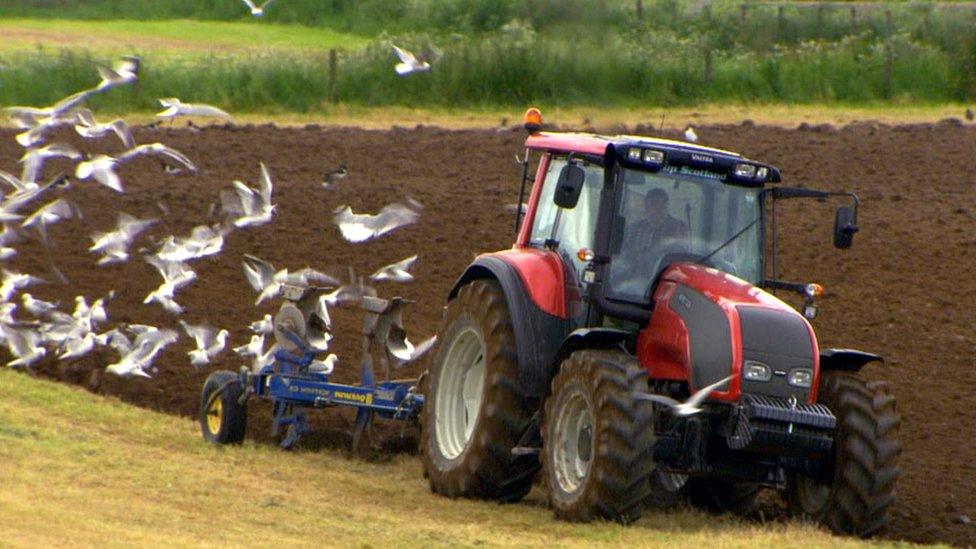Rural crime in England reaches eight-year high of £46m
- Published
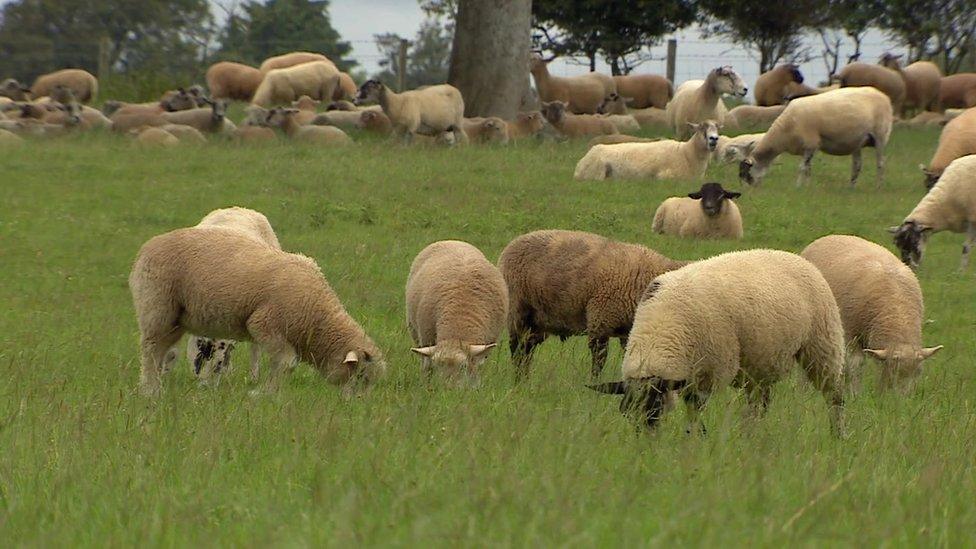
Livestock theft, with a particular focus on sheep, is up by 15% to £3m a year
Rural crime in England hit an eight-year peak last year, costing businesses around £46m, according to a new report.
This 9% rise was partially driven by "organised gangs" targeting expensive vehicles like tractors and quad bikes, according to insurer NFU Mutual, external
They also revealed a spike in livestock theft during lockdown, including a 15% increase in sheep rustling.
Jonathan Rogers, from Plymouth, said he was "naive" to the threat before having 100 lambs worth around £10,000 stolen.
According to the insurer's rural crime report, the total cost to the UK was £54.3m last year, including , external, £2.6m of , external and £3.3m in Northern Ireland.
The problem rose in every English region, with the three worst affected counties being Lincolnshire (£2.8m), Essex (£2.7m) and North Yorkshire (£2.2m).
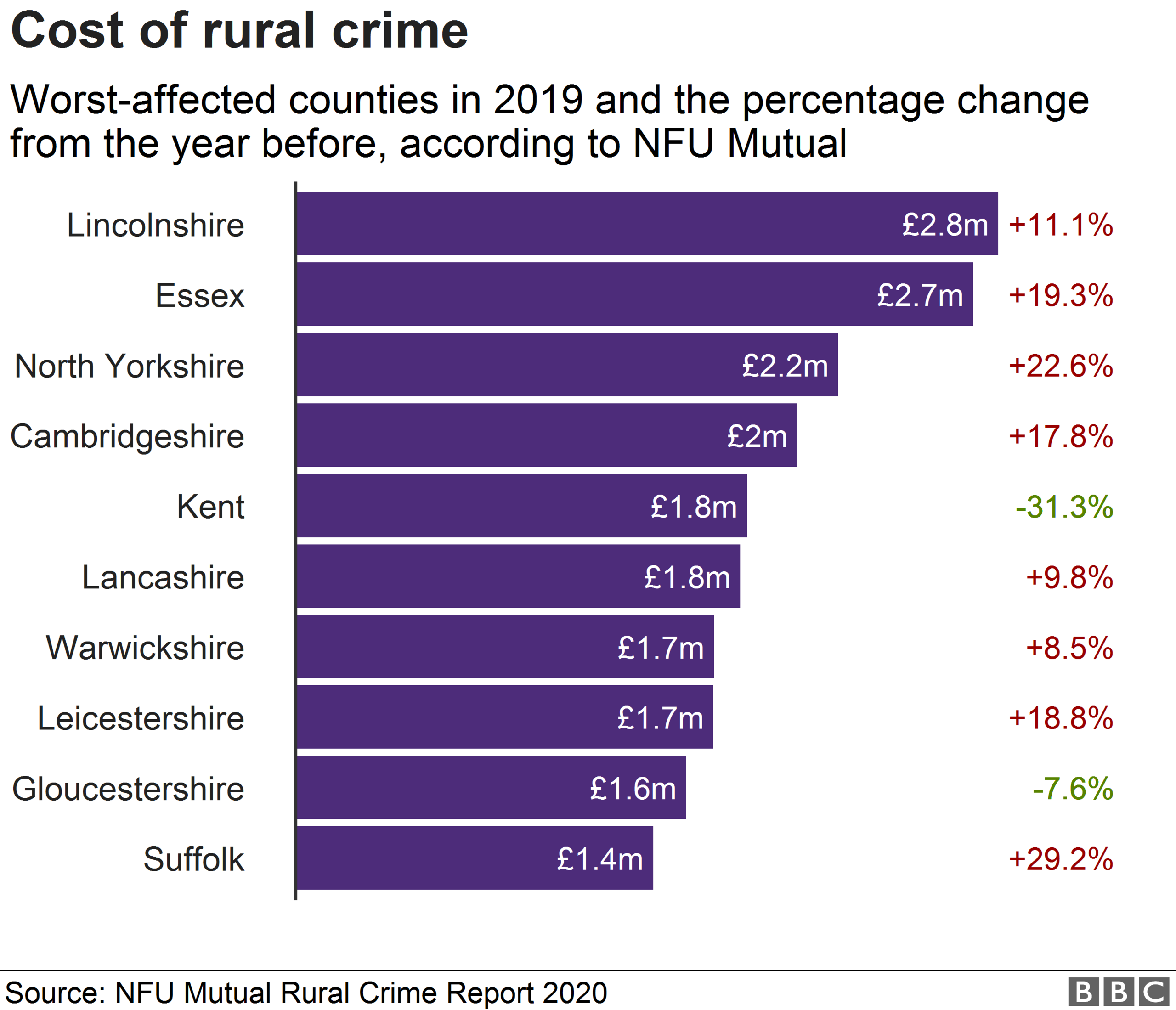
Demand for high end farm equipment was fuelling the rise, the report said.
In 2019, the value of these thefts, including tractors, quad bikes and four wheel drives, was £14.5m, up from £11.6m in 2018.
The cost of livestock theft also rose by 9% to £3m, according to the findings.
The report said: "Well-organised gangs taking large numbers of sheep, which are thought to enter the food chain illegally, are driving the increase.
"A spate of sheep being slaughtered and butchered in farmers' fields also contributed to the rise."
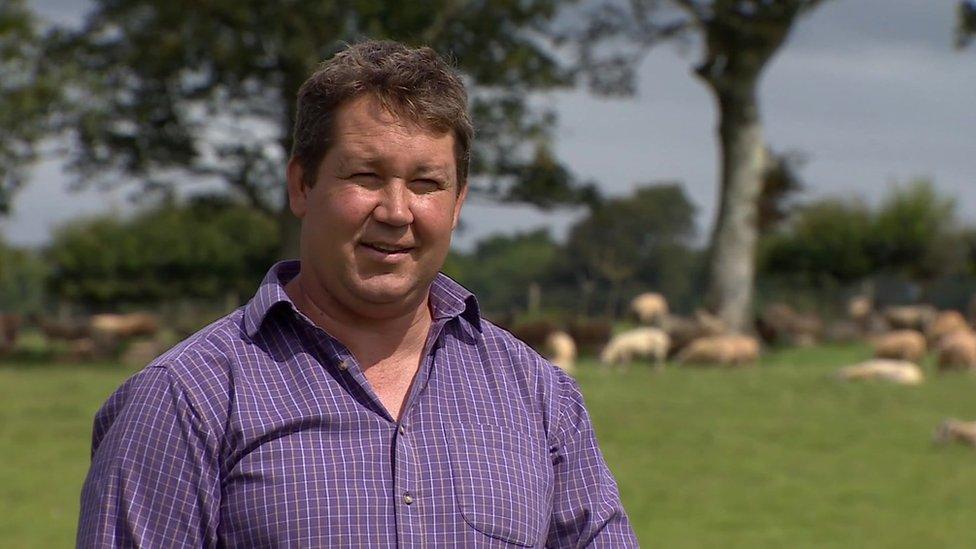
Jonathan Rogers discovered 100 lambs had been stolen when trying to select some for the Easter market
Sheep farmer Jonathan Rogers said he was "extremely angry" after discovering 100 lambs had been stolen from his Devon farm.
The animals had an estimated value of £10,000 and were due to be sent to market for Easter.
Mr Rogers said: "I was naive to sheep rustling as it was the first time it had ever happened."
He added the thieves must have been watching him to succeed.
"They had to have known my habits, to have been quite well organised and in and out quick."
- Published4 August 2020
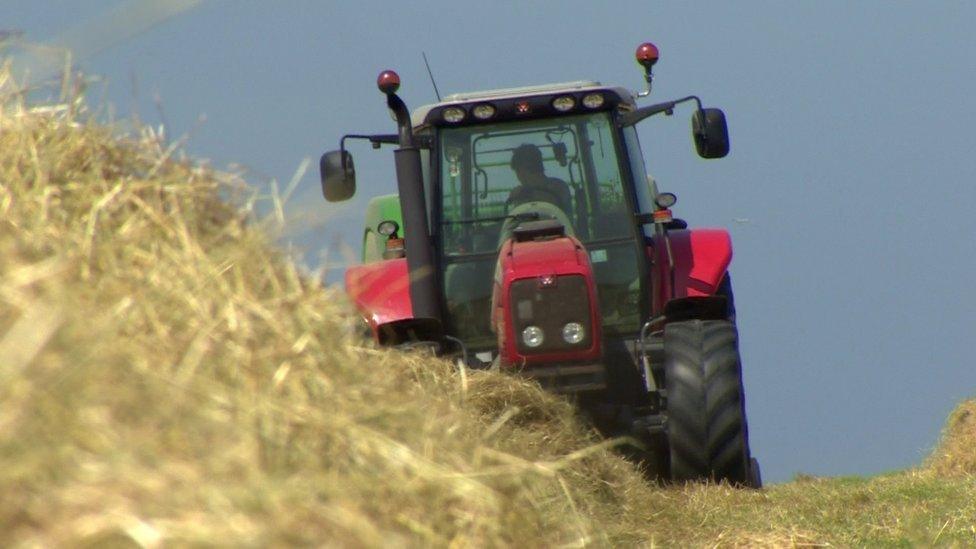
- Published4 August 2020
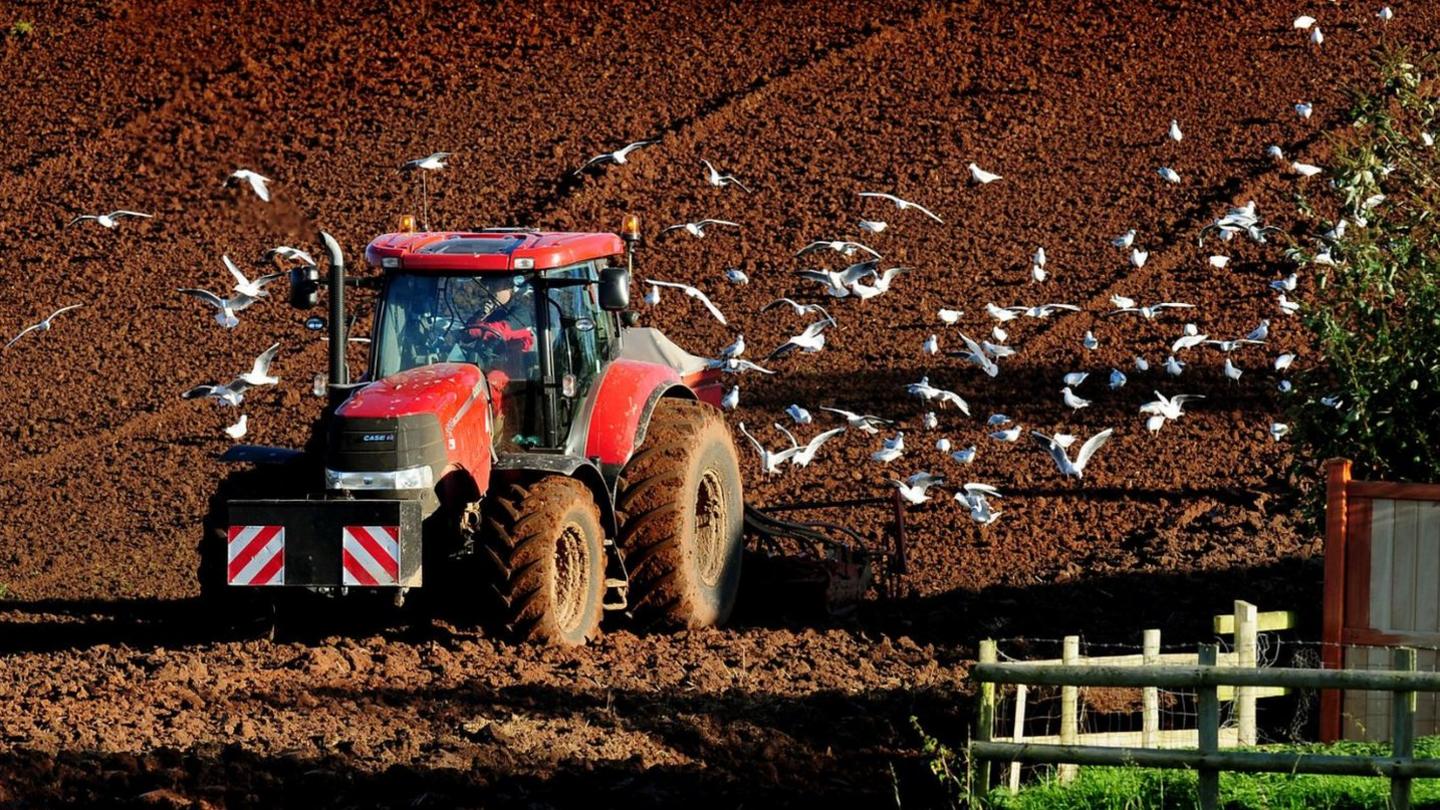
- Published4 August 2020
